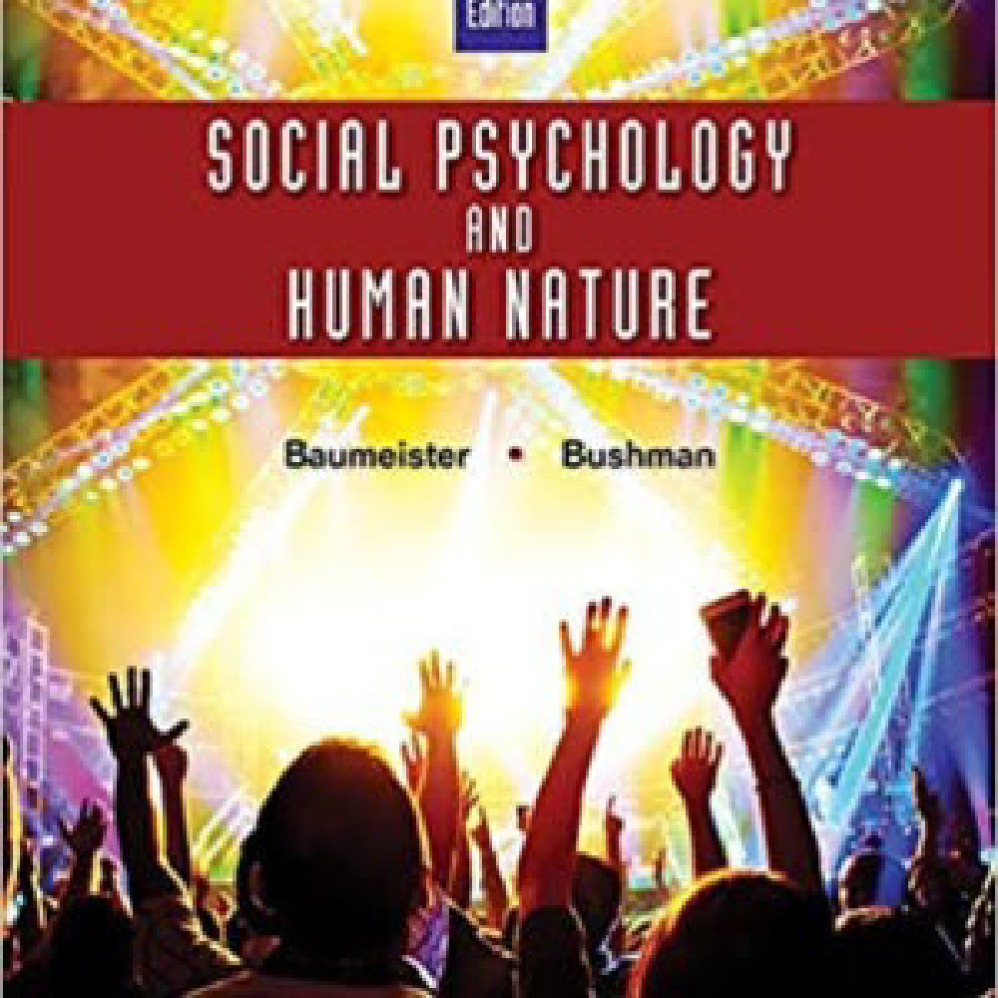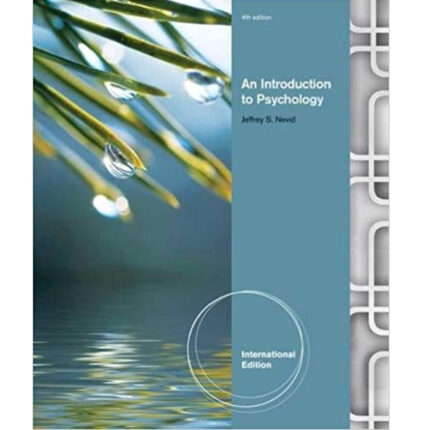CHAPTER 11—Interpersonal Attraction and Rejection
MULTIPLE CHOICE
1. Anything that draws two or more people together is called ____.
a. attraction
b. exclusion
c. rejection
d. social acceptance
ANS: A DIF: Easy REF: Introduction KEY: Bloom’s: Remember OBJ: SOCP.BAUM.17.11.01: Differentiate the two ingredients for belongingness, and debate why the need to belong is a basic need for a cultural animal.
2. The force that causes people to want to be together and form lasting relationships can best be described as ____.
a. acceptance
b. attraction
c. reinforcer
d. reflection
ANS: B DIF: Moderate REF: Introduction KEY: Bloom’s: Remember OBJ: SOCP.BAUM.17.11.01: Differentiate the two ingredients for belongingness, and debate why the need to belong is a basic need for a cultural animal.
3. As defined in the text, social exclusion is the opposite of ____.
a. social acceptance
b. loneliness
c. independence
d. attraction
ANS: A DIF: Easy REF: Introduction KEY: Bloom’s: Understand OBJ: SOCP.BAUM.17.11.01: Differentiate the two ingredients for belongingness, and debate why the need to belong is a basic need for a cultural animal.
4. As defined in the text, social acceptance is the opposite of ____.
a. social exclusion
b. loneliness
c. independence
d. attraction
ANS: A DIF: Easy REF: Introduction KEY: Bloom’s: Understand OBJ: SOCP.BAUM.17.11.01: Differentiate the two ingredients for belongingness, and debate why the need to belong is a basic need for a cultural animal.
5. Dr. Gregory is liked, respected, and approved of by her colleagues. That is, she has gained her colleagues’ ____.
a. social acceptance
b. ethos
c. companionate trust
d. cognitive investment
ANS: A DIF: Easy REF: Introduction KEY: Bloom’s: Apply OBJ: SOCP.BAUM.17.11.01: Differentiate the two ingredients for belongingness, and debate why the need to belong is a basic need for a cultural animal.
6. Research suggests that ____ are by nature “loners” who are indifferent to social contact.
a. most people
b. about a third of people
c. a small minority of people
d. virtually no one
ANS: D DIF: Moderate REF: The Need to Belong KEY: Bloom’s: Understand OBJ: SOCP.BAUM.17.11.01: Differentiate the two ingredients for belongingness, and debate why the need to belong is a basic need for a cultural animal.
7. As discussed in the text, prisoners who live in solitary confinement ____.
a. initially crave social comfort, but get used to living alone after a few months
b. initially crave social comfort, but get used to living alone after a few weeks
c. do not necessarily crave social comfort; some are happy living alone right away
d. crave social comfort, do not get used to living alone, and take desperate measures to try to communicate with others
ANS: D DIF: Easy REF: The Need to Belong KEY: Bloom’s: Understand OBJ: SOCP.BAUM.17.11.01: Differentiate the two ingredients for belongingness, and debate why the need to belong is a basic need for a cultural animal.
8. Which statement regarding testosterone levels in men is MOST accurate?
a. They usually dip after men reach their early twenties.
b. They are usually constant throughout life.
c. They do not appear to be associated with sex drive.
d. They do not appear to be associated with risk-taking behavior.
ANS: A DIF: Moderate REF: The Need to Belong KEY: Bloom’s: Understand
OBJ: SOCP.BAUM.17.11.01: Differentiate the two ingredients for belongingness, and debate why the need to belong is a basic need for a cultural animal.
9. Among men, which of the following is least associated with high levels of testosterone?
a. Unstable marriage
b. Disinterest in staying at home and caring for children
c. High sex drive
d. High incidence of depression
ANS: D DIF: Moderate REF: The Need to Belong KEY: Bloom’s: Understand OBJ: SOCP.BAUM.17.11.01: Differentiate the two ingredients for belongingness, and debate why the need to belong is a basic need for a cultural animal.
10. On average, which group of men is likely to have the highest testosterone levels?
a. married men
b. divorced men (now single)
c. single men (never married)
d. same levels for single and married men
ANS: B DIF: Difficult REF: The Need to Belong KEY: Bloom’s: Understand OBJ: SOCP.BAUM.17.11.01: Differentiate the two ingredients for belongingness, and debate why the need to belong is a basic need for a cultural animal.













Reviews
There are no reviews yet.